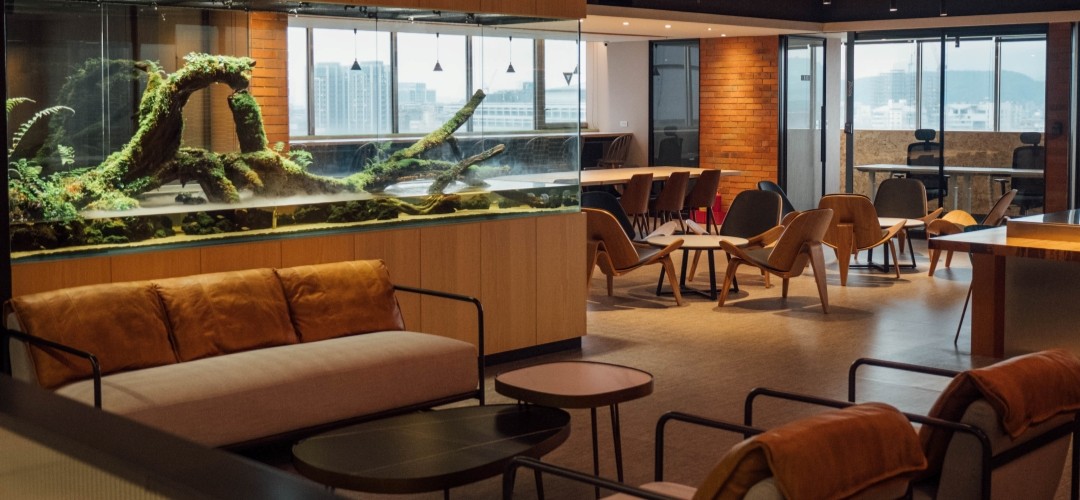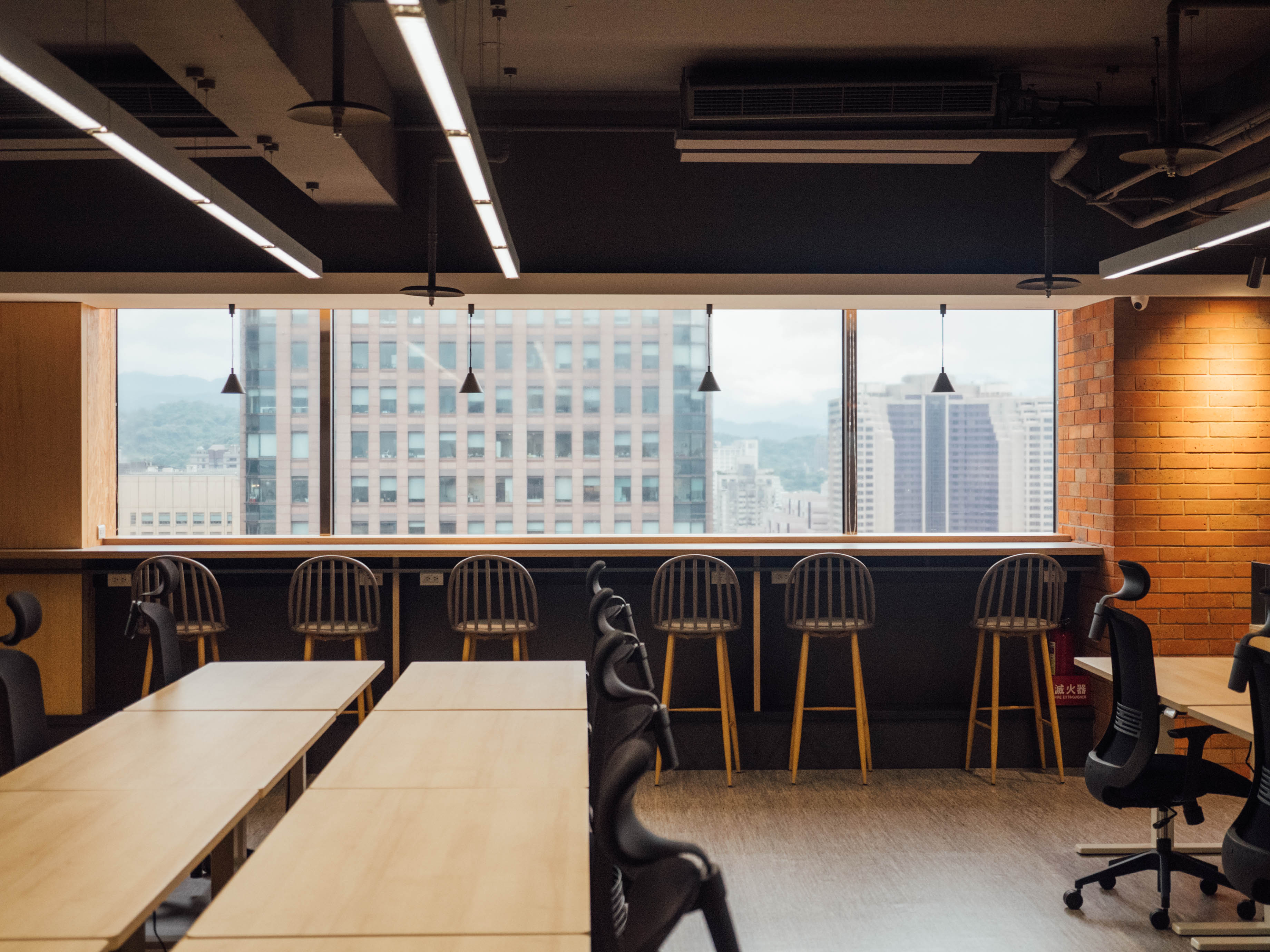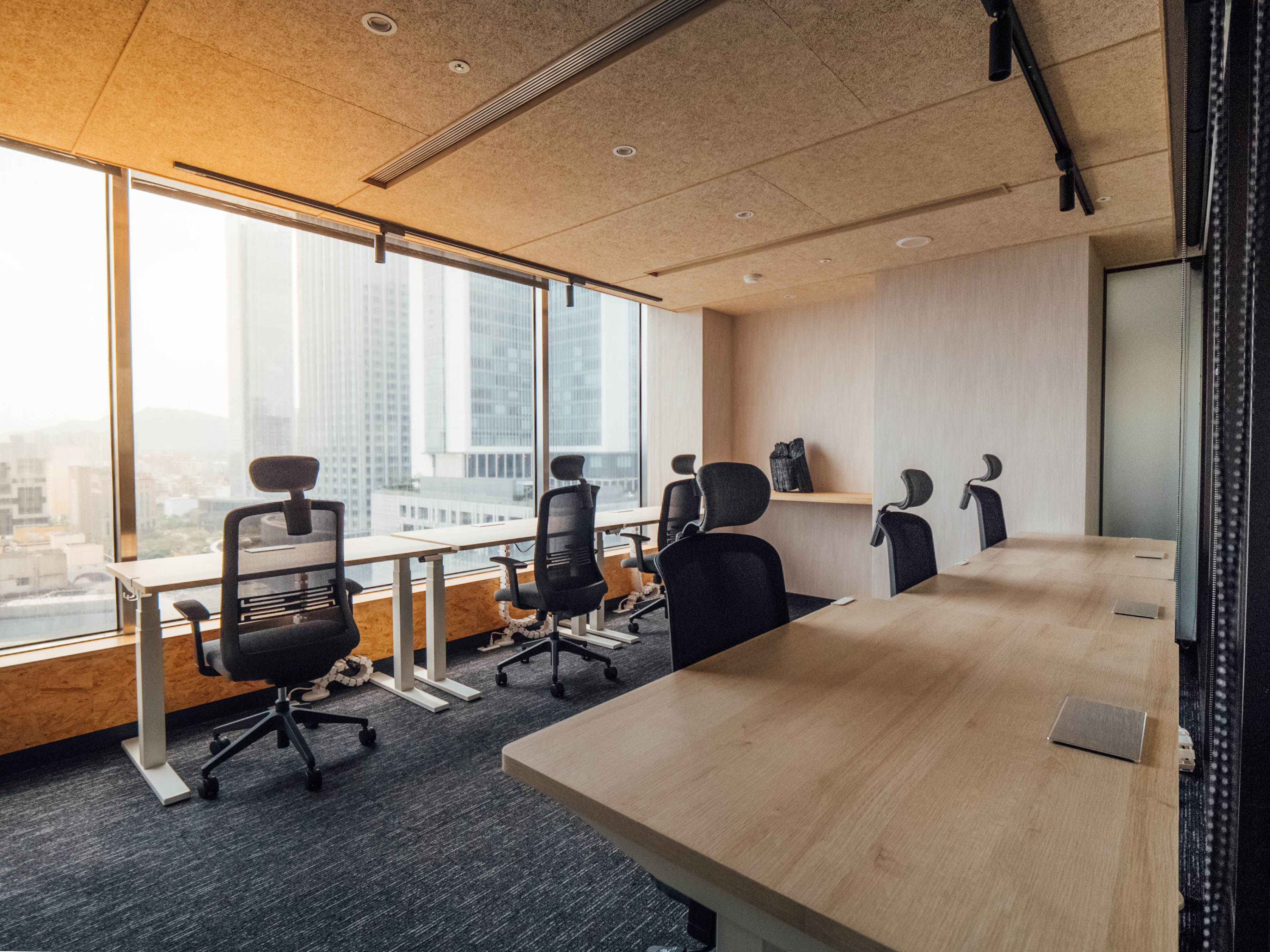
Latest
April 25, 2025
What is a Shared Office? Costs, Benefits, and Top Coworking Options in Taipei
Contents
- 1. The Trend of Shared Offices: What is a Shared Office?
- 2. Shared Office vs. Traditional Office: Pros & Cons
- (A) Shared Office
- (B) Traditional Office
- 3. Shared Office Costs: Flexible Options for Modern Work
- (A) How is Shared Office Rent Calculated? Overview of Various Solutions
- (B) Factors Affecting Costs
- 4. Recommended Shared Office: Prime Location and High-End Facilities at T3CO
1. The Trend of Shared Offices: What is a Shared Office?
A shared office is a new type of workspace model that allows different companies, individuals, or freelancers to share the same office space. Shared offices typically provide a variety of facilities, such as desks, meeting rooms, high-speed internet, printing equipment, and lounge areas. Users can choose the space and durations that best suit their needs without the commitment of long-term leases or the expense of purchasing office equipment. This model is particularly favored by startups, freelancers, remote workers, and small businesses because it not only saves costs but also offers opportunities to interact and collaborate with other professionals. It creates a vibrant community where professionals from various industries can connect and innovative.
2. Shared Office vs. Traditional Office: Pros & Cons
After understanding the basics of shared offices, you might wonder how they differ from traditional offices. Shared offices have gained significant attention in recent years for their flexibility, convenience, and vibrant community vibe, attracting many companies and individual workers. But compared to traditional offices, what are the advantages and disadvantages of shared offices? Here’s a breakdown:
(A) Shared Office
Advantages:
- Cost Savings: Share resources like rent, furnishings, and equipment, significantly lowering overhead.
- Flexibility:& You can choose the office space and lease term according to your team size and business needs. Whether for short-term projects, long-term development, individual seats, or dedicated areas for small teams, shared offices can meet your requirements.
- Comprehensive Amenities: Shared offices are typically equipped with comprehensive office equipment such as high-speed internet, meeting rooms, copiers, coffee and beverage, etc. This not only helps save costs but also greatly improves work efficiency. Some shared spaces also regularly host professional seminars and workshops, providing members with learning and growth opportunities.
- Networking Opportunities:Shared offices gather professionals from diverse industries, fostering an environment that encourages cross-industry collaboration and sparks more creativity and inspiration.
- Reduced Management Burden:On-site management handles maintenance and administrative tasks, allowing you to focus on your core business.
- Comfortable Work Environment:Many shared offices now place great emphasis on modern and well-designed spaces, providing comfortable and creative work environments. This not only enhances the work experience and efficiency but also allows you to relax and unwind during breaks.
Disadvantages:
- Limited Privacy:Due to the open layouts, you often share areas with other workers. For those needing high confidentiality or private spaces, this may require extra consideration.
- Potential Distractions:The open design facilitates interaction but can also lead to some disturbances. Those needing high concentration or a quiet environment may need time to adapt. However, many shared spaces now offer different work areas, such as meeting rooms and phone booths, to help you choose the most suitable place for the current tasks.
- Limited Space:Since shared office space is allocated based on demand, you may sometimes find less available space than expected, especially during rapid business expansion. However, shared offices usually offer flexible upgrade options, allowing you to adjust their space configuration as the company grows.
- Limited Customization:& Facilities and management in shared offices are typically provided uniformly by the operator, you might have less ability to customize the space or services. Nevertheless, most shared spaces offer very comprehensive facilities that meet the basic needs of most businesses.
(B) Traditional Office
Advantages:
- High Autonomy:Traditional offices offer a high degree of autonomy, allowing businesses to design and decorate the workspace entirely according to their own needs and style.
- High Privacy:Compared to open or shared spaces, traditional offices usually provide greater privacy. Dedicated spaces ensure confidentiality and minimal distractions.
- Sense of Belonging:A consistent environment helps employees develop a stronger sense of belonging to the company.
Disadvantages:
- Higher Costs:Rent for traditional offices is often higher, especially in business districts or city centers. In addition to rent, there are extra expenses such as utilities, cleaning fees, equipment maintenance, and the need to hire staff for office management and maintenance, which increases management costs and burdens.
- Inflexibility:Traditional office leases are usually longer and the space configuration is more fixed. When the company expands or downsizes, it’s difficult to quickly adjust the workspace, leading to underutilized or overcrowded spaces.
- Lower Space Utilization:The configuration of traditional offices is relatively fixed, often requiring reserved meeting rooms and lounge areas. If employees are not in the office, these areas may be underutilized, resulting in wasted space.
- Time and Effort for Renovation:After renting a traditional office, considerable time and money are usually needed for renovation to create a workspace that meets the company’s needs. This not only consumes resources but can also delay the office’s opening.
- Limited Networking Opportunities:Due to the relatively closed nature of traditional offices, daily interactions are mainly limited to internal teams, making it harder to meet professionals from different industries or backgrounds.
3. Shared Office Costs: Flexible Options for Modern Work
(A) How is Shared Office Rent Calculated? Overview of Various Solutions
Shared offices have become the top choice for many startups and freelancers, but how are the rental fees calculated? Here is a summary of T3CO&’s carefully designed solutions to help you and your team easily find the most suitable work environment:
Pricing Overview
Plan Type | Monthly Fee (per person) | Features | Ideal For |
Hot Desk | NT$6,500 | Shared seating, 24/7 access, free coffee/snacks, meeting rooms, high-speed internet, community events | Freelancers, remote workers, digital nomads |
Dedicated Desk | NT$10,000 | Assigned seating, ergonomic chair, adjustable desk, 24/7 access, free refreshments, meeting rooms, high-speed internet, community events | Entrepreneurs, creative professionals, remote teams |
Private Office | NT$13,000 | Secure, quiet space, ergonomic furniture, 24/7 access, free refreshments, meeting rooms, high-speed internet, community events | Startups, SMEs |



In addition to standard monthly plans, T3CO also offers daily and short-term rental options. Whether it’s for temporary meetings, project collaborations, or flexible work modes, T3CO can provide customized solutions to help you arrange your workspace and time more flexibly. However, specific prices and plan details still need to be confirmed based on your actual needs, so it’s recommended to contact T3CO directly for a personalized quote.
Book a visit now to experience T3CO’s premium office environment firsthand!
(B) Factors Affecting Costs
Besides the basic rental calculation, many factors affect the cost of shared offices, including:
- Location:Shared offices in city centers or business districts usually have higher rents due to convenient transportation and abundant surrounding resources. Offices in remote or non-core areas are relatively cheaper.
- Space Size:The size of the office is a key factor in determining rent. The larger the area, the higher the rent. If you only need a single seat or a small team office, the rent will be lower.
- Amenities:Shared offices offer various types of seating, such as hot desks, dedicated desks, and private offices. Hot desks are usually the most affordable, suitable for short-term or individual needs; dedicated desks guarantee a personal workspace at a higher cost; private offices offer more privacy and space for teams, with higher rent.
- Facilities and Services:The quality and quantity of facilities and services provided by the shared office, such as meeting rooms, printing equipment, refreshments, and internet services, directly impact the cost. These can increase overall expenses but also improve work efficiency and comfort.
- Lease Term:Generally, longer leases offer better rates. Some shared offices may also provide annual payment discounts or other promotions.
4. Recommended Shared Office: Prime Location and High-End Facilities at T3CO
Whether you’re a digital nomad or a remote worker, flexible corporate team, T3 Coworking space can meet your diverse needs! Why choose T3CO?
- Comprehensive Kitchen and Dining Area:Want to enjoy delicious food while working? T3CO provides microwaves, ovens, and other equipment so you can enjoy hot meals anytime.
- Showers and Storage: Stay refreshed even during busy workdays! T3CO offers complete shower facilities for a quick energy boost after work, as well as lockers and storage space for your personal belongings.
- Electric Height-Adjustable Desks and Ergonomic Chairs:T3CO is equipped with electric standing desks and ergonomic chairs, ensuring comfort even during long working hours.
- 24/7 Access: Work on your schedule, day or night.
- Flexible Membership Plans: Customized solutions for freelancers, startups, and established enterprises.
- Regular Events & Workshops: Engage in learning opportunities and expand your professional network.
- International Community: Connect with professionals from diverse backgrounds and industries.
- Prime Location: Situated in the heart of Taipei's business district with stunning city views.
Experience the dynamic environment of T3CO and find the perfect workspace tailored to your needs.
For more information or to schedule a tour!
Related Posts
Explore the new trends in coworking to help you stand out in the era of remote work.